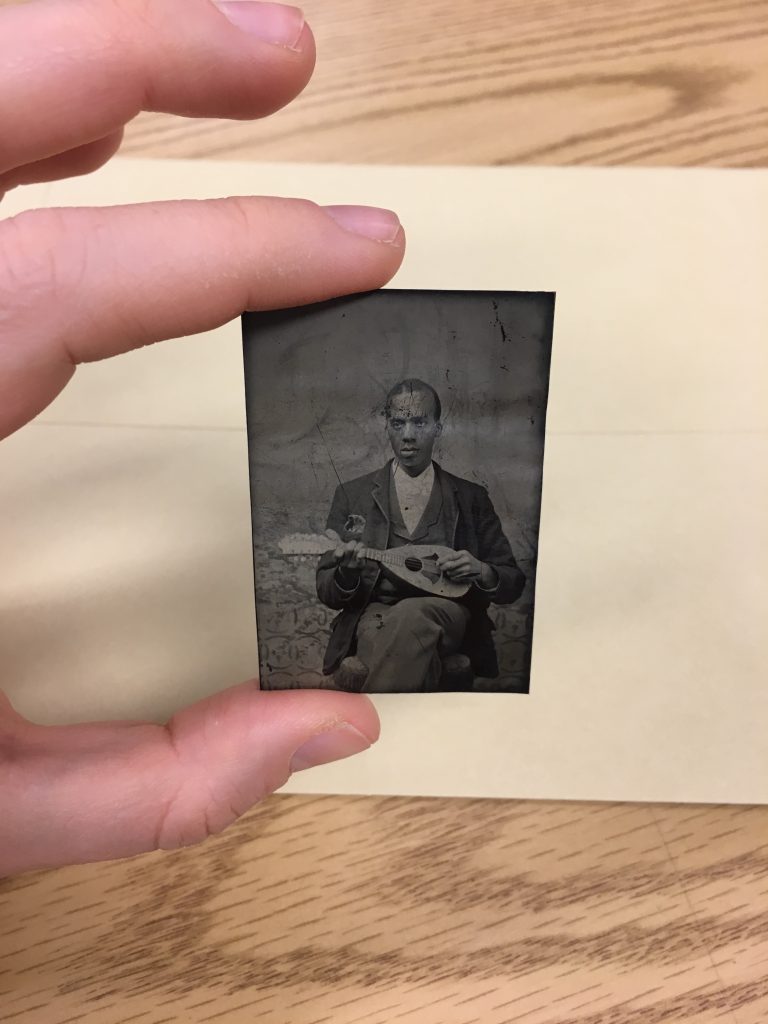Ellie Armon Azoulay, a PhD student at the Centre for American Studies, has recently returned from a month’s research trip in the USA, having been awarded this year’s Christine and Ian Bolt Scholarship. The scholarship was set up in memory of Christine Bolt, Emeritus Professor of History at the University of Kent, by her husband, and supports a sustained period of research in America.
Ellie’s PhD thesis is entitled, The Voiceless Were Singing When You Came to Give Them Voice; Confronting Practices of Collecting African American Folk Music in the US, 1900-1950. The study explores different approaches to collecting African American folk music during the first half of the 20th century, and how these can affect representation and the understanding of an important historical archive.
Reflecting on her research trip, Ellie writes;
“For the past year and a half, I’ve been exploring the surprisingly rich terrain of Americanist scholarship within the UK, and simultaneously taking advantage of the multiple resources and databases available online. The distance between the UK and America is not just geographical, but cultural, which – for me – provides a variety of perspectives, and a certain freedom of expression.
One of my research aims is to identify the role of national and federal institutions in constructing national identity and historical narratives. Crucially, it is committed to highlighting and resounding other voices and initiatives – those which are often more regional, locale and smaller-scale – and which have often been marginalized historically. In the course of my research it became clear to me that I needed to question what materials exist beyond reach and accessibility. A simple search reaffirmed the bleak reality under which hegemonic institutions have greater resources to digitize and advance their collections, while those who were historically marginalized are still struggling to match such efforts.
With this understanding it became evident that I must find a way to overcome such barriers (geographical and economical) and visits local, unique archives and collections to study their content. I was extremely excited to learn about the Ian and Christine Bolt Scholarship and even more fortunate to have received it. It allowed me to fulfil an ambitious plan to visit five different collections at three different states – three of them kept in the archives and special collections of Historically Black Colleges and Universities (HBCU).
Moreover, spending times in these places enabled me to visit state archives, and local libraries to explore parallel links and expand the local context relevant to my research. In addition to these materials, I took advantage of this travel to follow the footsteps of my research subjects – the collectors – to be in places where the recordings took place, take photographs of specific locations, trace some of their living family members and to initiate some encounters and interactions that can only happen from word of mouth.
The Bolt Scholarship has allowed me access to smaller, sometime silenced or forgotten collections that would less likely to be digitized and therefore unknown to the broader research community as well as the wide public. The award offers young researchers like me a rare opportunity to immerse themselves in a long-term research endeavour that wouldn’t be possible otherwise.”
Image: Mandolin player, n.d., From Tintypes Collection, Center for Popular Music, Middle Tennessee State University.

